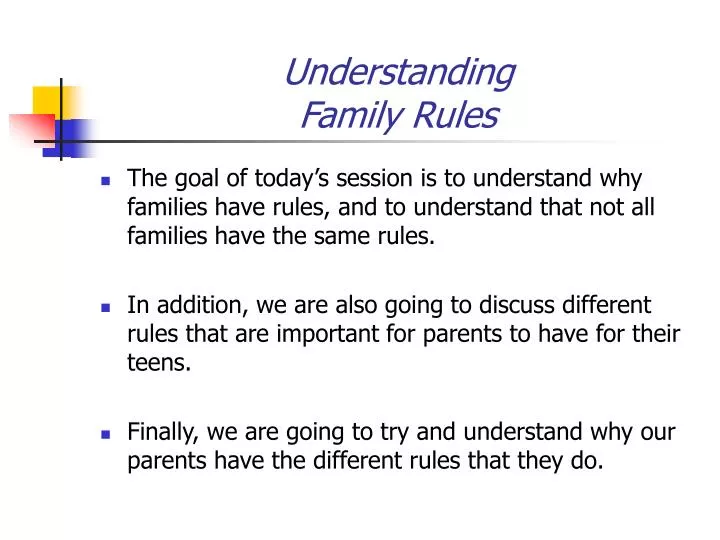Grasping the significance of rules in various aspects of life is fundamental, whether it pertains to business, education, or personal development. Rules offer a framework and direction, guiding individuals toward effectively achieving their objectives. A life without rules could easily descend into chaos and confusion. This article will explore the importance of rules, how they influence our actions, and their diverse impacts across different life domains.
Rules extend beyond mere restrictions; they open doors to opportunities. When fully comprehended, they transform into potent instruments for success. Whether navigating professional environments or fostering personal relationships, understanding rules empowers you to make informed decisions and sidestep unnecessary complications.
This article aims to provide an in-depth examination of rules across various contexts. From their influence on societal structures to their everyday applications, we will unravel the subtleties that make understanding rules an essential skill for everyone. Let us commence by exploring why rules hold such significance in today's world.
Read also:Robert Benevides
Why Understanding Rules is Vital
Rules serve as the cornerstone upon which societies, organizations, and even individual lives are established. They set boundaries, clarify expectations, and ensure fairness. By comprehending the rules, individuals can navigate complex systems more effectively and accomplish their objectives with greater efficiency.
In a professional setting, for example, understanding company policies and industry regulations helps employees avoid legal issues and boosts productivity. Similarly, in academia, students who grasp academic guidelines are more likely to succeed in their studies. Rules offer clarity and direction, making them indispensable in any environment.
Advantages of Understanding Rules
- Enhanced decision-making capabilities
- Improved adherence to legal and ethical standards
- Increased efficiency and productivity
- Reduced confusion and conflicts
- Better alignment with organizational goals
Domains Where Understanding Rules is Essential
In this section, we will delve into specific areas where understanding rules plays a critical role. From professional environments to personal relationships, rules profoundly shape our interactions and outcomes.
1. Business and Corporate Environments
In the corporate world, rules govern everything from employee conduct to financial transactions. Understanding corporate policies, industry regulations, and legal requirements is crucial for success. For instance, companies must comply with labor laws, tax regulations, and environmental standards to avoid penalties and maintain a positive reputation.
2. Education and Academic Institutions
Both students and educators benefit significantly from understanding the rules that govern academic environments. Whether it involves adhering to plagiarism guidelines or fulfilling curriculum requirements, rules ensure fairness and consistency in education. By following these rules, students can focus on learning and attaining their academic goals.
3. Personal Relationships and Social Dynamics
Even in personal relationships, comprehending the unwritten rules of communication and behavior is essential. Respecting boundaries, maintaining trust, and communicating effectively are all governed by social norms. By understanding these rules, individuals can build stronger, more meaningful relationships.
Read also:Sprunki Parodybox Wiki Fandom
Approaches to Effectively Understand Rules
Understanding rules is not merely about memorizing them; it involves internalizing their purpose and application. Here are some strategies to help you effectively grasp the rules:
1. Carefully Read and Study the Rules
Devote time to thoroughly read and comprehend the rules in their entirety. Whether it is a company handbook or a legal document, meticulous reading ensures you grasp all the details. Highlight significant points and make notes for future reference.
2. Seek Clarification When Necessary
If any part of the rules is unclear, do not hesitate to seek clarification. Ask questions, consult experts, or refer to supplementary resources. Fully understanding the rules is preferable to guessing or assuming their meaning.
3. Practice and Apply the Rules
Application is key to truly understanding rules. Practice adhering to them in real-life situations and observe the outcomes. This hands-on approach reinforces your understanding and enables you to adapt the rules to different contexts.
Addressing Common Misconceptions About Rules
Many individuals harbor misconceptions about rules, which can impede their ability to understand and apply them effectively. Below are some prevalent misconceptions and the truths behind them:
1. Rules Stifle Freedom
Misconception: Rules restrict personal freedom and creativity.
Truth: Rules enhance freedom by providing structure and clarity. They create a framework within which individuals can operate effectively and achieve their goals.
2. Rules are Inflexible and Immutable
Misconception: Rules cannot be adapted or modified.
Truth: While some rules are fixed, many can be adjusted based on evolving circumstances or feedback. Flexibility is often built into rule systems to accommodate changing needs.
3. Only Experts Need to Understand Complex Rules
Misconception: Only professionals or experts need to understand intricate rules.
Truth: Everyone benefits from understanding the rules that apply to their lives, whether in business, education, or personal matters. Knowledge empowers individuals to make informed decisions.
The Role of Rules in Society
Rules play a pivotal role in maintaining order and promoting fairness in society. They establish standards of behavior, protect individual rights, and ensure the smooth operation of institutions. By understanding the rules, citizens contribute to a more just and equitable society.
For example, traffic rules prevent accidents and ensure safe travel for everyone. Legal rules safeguard individuals' rights and hold wrongdoers accountable. Social rules foster respectful interactions and build cohesive communities. Understanding these rules is essential for societal harmony.
Data and Statistics on the Impact of Rules
Research indicates that adherence to rules significantly improves outcomes in various areas:
- According to the World Health Organization, countries with robust traffic rules have lower accident rates.
- A survey by the Society for Human Resource Management found that companies with clear policies experience higher employee satisfaction and retention rates.
- Studies by educational institutions reveal that students who follow academic rules achieve better grades and are more likely to graduate.
Understanding Rules in the Digital Age
In today's digital era, comprehending the rules of technology and online platforms is more crucial than ever. From data privacy regulations to social media guidelines, digital rules shape our online interactions and protect our information.
1. Data Privacy and Security
With the proliferation of digital platforms, data privacy rules have become indispensable. Laws such as the General Data Protection Regulation (GDPR) and the California Consumer Privacy Act (CCPA) ensure that individuals' personal information remains protected. Understanding these rules helps users safeguard their data and prevent potential breaches.
2. Social Media and Online Behavior
Social media platforms have established rules governing user behavior. These rules promote respectful interactions and prevent harassment or misinformation. By understanding and adhering to these rules, users can create positive online experiences for themselves and others.
Challenges in Grasping Rules
While understanding rules is essential, it is not without challenges. Below are some common obstacles and ways to overcome them:
1. Complexity of Rules
Some rules, particularly legal or technical ones, can be intricate and difficult to understand. To overcome this, break them down into simpler components, consult experts, or utilize plain language resources.
2. Constant Evolution of Rules
Rules in many fields are subject to change due to evolving circumstances or new information. Stay updated by regularly reviewing relevant sources and subscribing to updates from authoritative bodies.
3. Resistance to Following Rules
Some individuals may resist following rules, perceiving them as unnecessary or burdensome. Overcome this by emphasizing the benefits of rule adherence and fostering a culture of compliance and accountability.
Conclusion: Act and Embrace the Rules
Understanding rules is a powerful skill that can transform your personal and professional life. By grasping their purpose and application, you can navigate complex systems, avoid pitfalls, and achieve your goals effectively. Remember, rules are not meant to restrict but to guide and empower.
We encourage you to take action by applying the strategies outlined in this article. Whether it involves reading and studying the rules, seeking clarification, or practicing their application, every step contributes to mastery. Share your thoughts and experiences in the comments below, and don't forget to explore other articles on our site for more valuable insights.
Table of Contents
- Why Understanding Rules is Vital
- Domains Where Understanding Rules is Essential
- Approaches to Effectively Understand Rules
- Addressing Common Misconceptions About Rules
- The Role of Rules in Society
- Understanding Rules in the Digital Age
- Challenges in Grasping Rules
- Conclusion: Act and Embrace the Rules
By following the principles outlined in this article, you can unlock the full potential of understanding rules and create a more structured, successful life. Let us embrace the rules and make them work for us!


